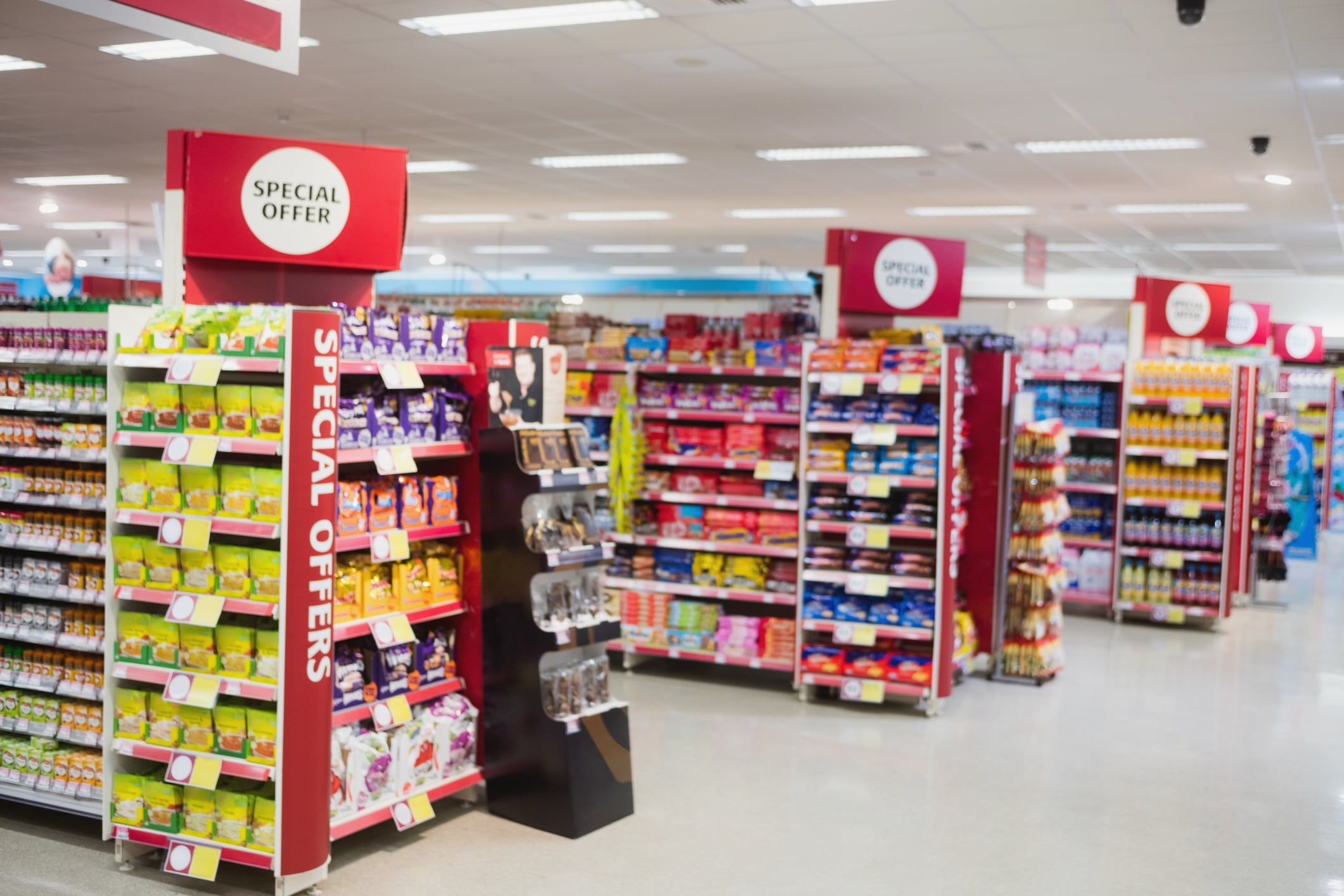The ban – which would have restricted offers like ‘buy one get one free’ and ‘3 for 2’ on products such as crisps, sweetened cereals, confectionery and soft drinks – had already been passed into law under the 2022 Health and Care Act.
After repeated delays under Conservative leadership, Labour has now confirmed it will not bring the measure into force.
Labour’s U-turn was sealed on 4 July 2025, when Prime Minister Keir Starmer launched the party’s 10-year NHS plan. Instead of pushing bans and restrictions, the government is backing a looser, incentive-led strategy built on industry partnerships, reformulation and consumer education.
As part of this shift, the government will also repeal the long-postponed ban on HFSS advertising on TV before 9pm and across digital platforms.
Instead, the Department of Health and Social Care (DHSC) will consult on a “smarter, pro-innovation and pro-consumer” regulatory framework intended to support industry-led solutions.
What’s in Labour’s 10-year NHS plan?

Labour’s public health reboot leans on carrots, not sticks, favouring incentives, transparency and reform over hardline bans. Key pillars include:
Healthy Choice Framework: A voluntary scheme to boost the visibility and affordability of healthier options through better shelf placement and financial incentives for retailers.
Mandatory health sales reporting: Supermarkets and food manufacturers will need to disclose what proportion of their sales come from healthier products, giving government and campaigners a clearer view of progress.
Overhauled HFSS model: Labour plans to modernise the 2004 Nutrient Profiling Model to better distinguish between naturally nutritious foods and ultra-processed products.
Voluntary advertising code: Instead of mandatory ad bans, the government will consult on a voluntary code to curb HFSS advertising to children, especially online.
Expanded NHS weight services: Investment will flow into local, NHS-led weight-loss support and access to new obesity medications.
Better school food and activity: Schools will be expected to meet tougher national standards for nutrition and physical activity as part of a long-term prevention strategy.
A deep rift between health and affordability

Concerns over the rollback of HFSS rules had been brewing for weeks before Labour’s official policy announcement.
On 19 June, following media reports the HFSS multibuy ban might be dropped, the Obesity Health Alliance (OHA) issued a public statement calling such a move a “major betrayal of public health,” warning it would worsen the UK’s obesity crisis.
“Multi-buy price promotions do not save people money,” said OHA director Katharine Jenner at the time. “Instead, they encourage people to impulsively buy more unhealthy food.”
Statistics back up the concern. As of 2024, nearly two-thirds of adults in England were overweight or obese, with more than one in four classed as obese. Childhood rates are just as stark: 22.1% of 10- to 11-year-olds and 9.6% of 4- to 5-year-olds are obese – with prevalence climbing sharply in the poorest areas. The estimated annual cost to the UK is £126 billion in healthcare and lost productivity.
A 2022 government impact assessment had estimated that implementing the promotions ban would have cut annual calorie consumption by 7 billion kilocalories and delivered £57 billion in NHS savings over 25 years.
However, Labour argues the economic context has shifted. With shoppers still feeling the pinch and retailers juggling rising costs, ministers argue this isn’t the moment to clamp down on multibuy deals. Instead, they say working with – not against – industry is a more sustainable route to healthier diets. Health Secretary Wes Streeting maintains that Labour is still serious about tackling obesity but through “partnership, not punishment”.
Industry watches closely

While health groups condemned the U-turn, retailers and food manufacturers offered a more measured response, which is broadly supportive of Labour’s shift but wary of unresolved questions.
Leading supermarket chains including Tesco, Sainsbury’s and Aldi welcomed the move away from strict HFSS promotion bans, favouring Labour’s proposed Healthy Choice Framework and mandatory healthy food sales reporting. Many grocers had already started cutting back on prominent HFSS displays and the U-turn gives them more leeway to shape their own strategies.
But not everyone’s convinced – retailers like M&S and Asda have flagged concerns about added cost pressures and tighter margins. They warned that while incentives for healthier food are welcome, removing promotional tools without clear alternatives could still challenge value-sensitive shoppers, especially amid ongoing inflationary pressure.
Manufacturers, too, offered cautious backing. Speaking ahead of Labour’s confirmation, the Food and Drink Federation (FDF) had praised a “refreshing, pragmatic” shift away from punitive restrictions. But it also noted that businesses “still have a mountain to climb” in understanding evolving regulations – particularly on advertising – and called for clearer guidance to avoid confusion and unintended costs.
Meanwhile, many food companies have continued to reformulate products to comply with HFSS thresholds, anticipating future changes regardless of legislation. That trend is likely to continue under Labour’s softer regulatory approach, which still prioritises reformulation as a core strategy to improve national diets.
From bold reform to rollback

The idea of regulating HFSS food dates back over a decade.
The biggest push came under Boris Johnson’s Conservative government in 2020, driven by alarm over childhood obesity and the harsh toll of Covid-19 on people with poor diets.
By 2022, the Health and Care Act had locked in cross-party support for sweeping bans on multibuy deals and junk food advertising. Instore placement restrictions – barring HFSS items from checkouts and end-of-aisle displays – came into force in October 2022. The multibuy and ad bans, however, were repeatedly delayed amid cost-of-living concerns.
The food industry pushed back hard, warning the rules would upend pricing strategies and be costly to enforce. Implementation dates slipped repeatedly, from 2022 to 2023, then again to 2025.
Labour’s 2025 election victory brought a final rethink and the HFSS strategy as originally drafted is now being dismantled.
Some policies do remain: location rules are still in place and large restaurant chains must provide calorie information on menus. Reformulation targets for salt and sugar also continue under DHSC oversight, though enforcement remains patchy.
What happens next will hinge on whether Labour’s voluntary and incentive-based approach can drive real change without legislative enforcement.
What’s still in force?
Although the multibuy and advertising bans are off the table, several HFSS measures remain in effect:
HFSS placement restrictions: Products high in fat, salt and sugar are still barred from checkouts, store entrances and aisle ends in large retailers.
Calorie labelling: Big restaurant and foodservice chains must show calorie counts on menus.
Sugar tax: The Soft Drinks Industry Levy continues to target sugary drinks to encourage reformulation.
Reformulation targets: The DHSC is still pushing salt and sugar reduction across key food categories.
Ongoing surveillance: Programmes like the National Child Measurement Programme continue to track obesity and dietary health trends.
The new HFSS journey

The era of hardline HFSS regulation is over. Labour is now racing to define an alternative roadmap that balances public health goals with economic realities. A detailed framework is expected this autumn, centred on outcome-based targets and industry partnership.
Rather than banning unhealthy food promotions, Labour will introduce the Healthy Choice Framework to encourage visibility and affordability of healthier options. This may include recognition schemes, retailer scorecards and financial incentives tied to reformulated products and healthy ranges.
On advertising, the government is expected to replace the abandoned watershed with a voluntary industry code, particularly focused on protecting children. Campaigns like Better Health and Change4Life may be elevated through digital placement and platform collaboration.
Front-of-pack labelling reforms are under review, with potential plans to make the traffic light system mandatory or introduce a simplified health logo for children’s foods, inspired by models in France and Chile.
Community-based weight interventions will also expand, with Labour pledging greater NHS access to weight-loss services and renewed investment in school sport and nutrition programmes.
Meanwhile, the outdated 2004 Nutrient Profiling Model – which underpins HFSS classification – is being reviewed. Labour wants a modernised model that distinguishes natural fat or sugar content (like in dairy or nuts) from ultra-processed foods.
It’s unclear whether Labour’s voluntary, incentive-led reforms will truly move the needle on obesity. Health campaigners say only firm, enforceable rules can curb the commercial forces behind poor diets but Labour is staking its strategy on collaboration, not confrontation.
Key milestones to watch
Labour’s ‘smarter regulation’ plan is still in development. Key moments ahead include:
Autumn 2025: DHSC launches formal consultation on new food regulation strategy.
2026: Pilot schemes begin for the Healthy Choice Framework in major supermarkets.
2026-2027: Full review and update of the Nutrient Profiling Model expected.
2027 (TBC): Voluntary advertising code aimed at protecting children may be introduced.
Ongoing: Food businesses begin reporting the proportion of healthy food in total sales under new transparency measures.





